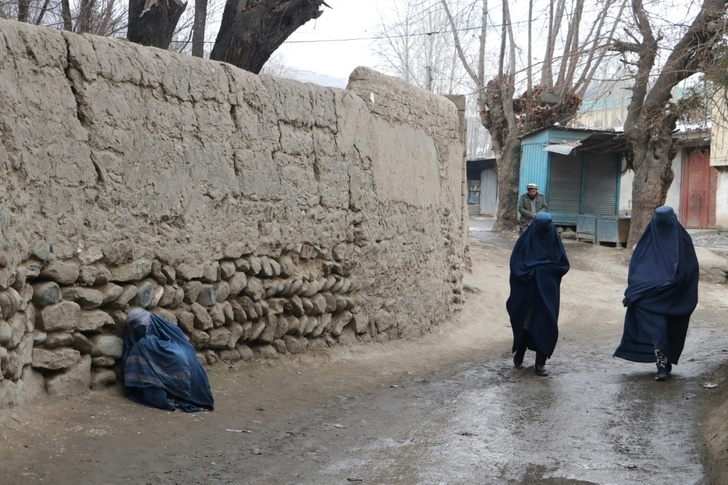The United Nations aid chief said Wednesday he had urged the Taliban authorities to offer more clarity on humanitarian sectors that could be reopened for Afghan women workers, warning that a "famine was looming" as the country faces a harsh winter.
Afghanistan confronts one of the world's worst humanitarian crises, aid agencies say, with more than half of its 38 million population facing hunger and nearly four million children suffering from malnutrition.
The crisis was compounded when Taliban leadership banned Afghan women from working with NGOs, forcing several aid agencies to suspend their vital work.
In recent weeks, the authorities have allowed women to work in the health sector only.
UN Under-Secretary General for Humanitarian Affairs and Emergency Relief, Martin Griffiths, said he hoped that more humanitarian sectors would be reopened for women workers.
"I have been told by a number of Taliban leaders that the Taliban, as an administration, is working on guidelines which will provide more clarity about the role and possibility and hopefully the freedom of women to work in humanitarian work," Griffiths told AFP in an interview at a UN office in Kabul.
"I think it's really important that we keep the light shining on the process to lead to those guidelines," he said, wrapping up a visit to Afghanistan.

It was the second UN-led delegation that came to Afghanistan this month to urge the Taliban government to reverse two recent decrees that have severely restricted women's rights.
Apart from banning women from working in NGOs, the Taliban authorities have also barred them from university education.
Government officials claim the two bans were imposed because women were not observing rules on wearing the hijab, an allegation denied by aid workers and university students.
Since returning to power in August 2021, the Taliban government has rapidly squeezed women out of public life, banning them also from secondary education, public sector work, as well as parks and baths.
Griffiths vowed that when it comes to delivering aid in the poverty-stricken country, the global humanitarian community will insist on deploying women workers.
"Wherever there are chances for us to deliver humanitarian assistance and protection in a principled way, which means with women, we will do so," he said.
But getting more exemptions for women to work across all humanitarian sectors was an important task at this stage.
"We don't have time. The winter is with us, people are dying, famine is looming," he said.
"We need decisions now, which is why I think these practical exceptions that we have been talking about are so important."
jd/tjj
© Agence France-Presse
Your content is great. However, if any of the content contained herein violates any rights of yours, including those of copyright, please contact us immediately by e-mail at media[@]kissrpr.com.
Source: Story.KISSPR.com

